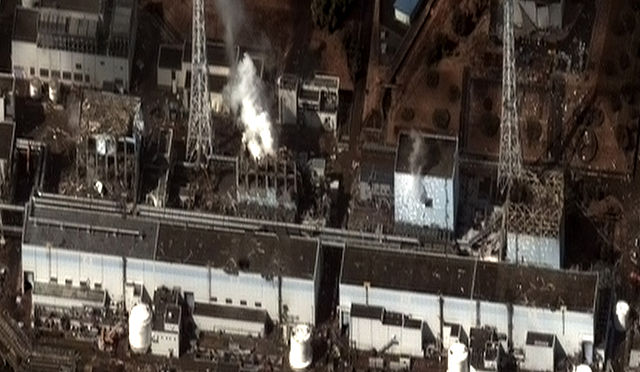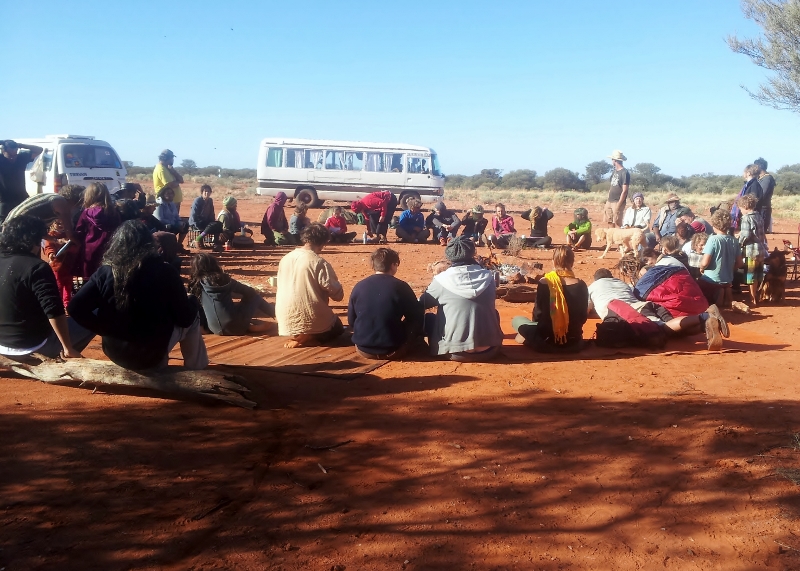Before we started on the walk we had two days to get used to camp life and all it entails. Setting up camp, gathering wood, building fires, cooking, cleaning, digging toilets (and using them). Browse through the pictures to get all the info.
[wppa type=”slide” album=”2″ align=”center”][/wppa]
Despite the many jobs and hardship of life in the desert the group remained amazingly conflict free. This has a lot to do with the way it was managed through the circle! All the info and decisions are made around this circle which surrounds the central camp fire. The circle usually meets twice a day, after breakfast and before dinner. There were ‘leaders’ in the circle but their only position was to facilitate it. All people had equal say. Most times people’s suggestions were agreed by everyone and it was quite easy to find common ground but there was a very strong feeling of avoiding conflict to the point of hypocrisy which made me think how long this system could hold up before something boils to the surface.
As for the work, at the beginning of the week a roster sheet was passed out with all the tasks that needed to be done and people were asked to fill their names in. As I wanted to learn as much as possible I signed up for a different task each day. One of the tricks I noticed, was to make sure there are lots of helping hands for each task, that way even a seemingly hard task like cleaning the toilet only takes a few minutes, as every person has to do only one small part of it. It probably isn’t the most efficient way but it worked. In fact, one only had to work on average around three hours a day (including packing and unpacking your own tent) to make sure the camp runs smoothly. It did help to have some real workaholics that kept on going and going.
The extra time we had was used for playing music, dancing, creating art, getting to know each other and learning more about uranium mining, which the entire second day was dedicated to.

The Fukushima nuclear reactor meltdown
Senator member, Scott Ludlam, from the greens flew in with some media and other activists. We heard about higher cancer rates in rural communities near Uranium mining sites, about nuclear reactor accidents like Fukushima, radioactive waste disposal and about the economic inefficiency of Uranium mining and Nuclear Power. In contrast to their ‘hippy’ looks and attitude the organizers surprised me with a deep understanding about economy and have very concrete plans on how to prevent the Uranium mine from being built by using economic influences. They are sending out reports to prospective investors showing that the mine is likely to lose money as well as buying up shares in the company which allows them to influence it from within! Not all of the arguments convinced me (accidents are not a logical step to stop progress, should we stop driving because of car accidents?) But two facts made up my mind against the Nuclear Power industry, if Uranium consumption is kept up at its current rate it is going to be depleted in the next 50+ years. That fact, in combination with the millions of tons of Nuclear waste created, which will last for more than 10,000 years (some more than a million years) is enough to make me want to stop this industry and move to real sustainable energy.
Another interesting aspect of camp life was the children. Families came on this walk too and there were around 15 children aged 2-13 amongst us. The children were integrated as much as possible in all aspects of camp life and kids as young as 4 were helping around camp. They even had a circle of their own! I have worked with a lot of children and these were extraordinary, curious, friendly, knowledgeable and with so much experience for such a young age. I realized there is something more natural and perhaps even easier for the parents to raise children in this type of community environment. The parents were never far off yet a lot of the time the kids were playing or being taught by someone else in this big ‘family’. Perhaps this is what tribal life used to be like. There was only one thing I was disappointed about, seeing traditional gender roles set in at such an early age, as most the girls helped in the kitchen while the boys went to collect and chop wood.
Coming up next – Hunter Gatherer – What I learnt from the Aboriginal Rangers.

